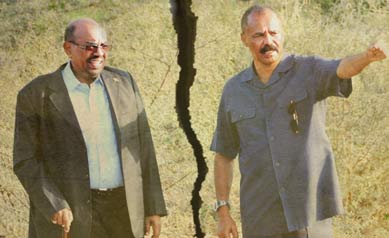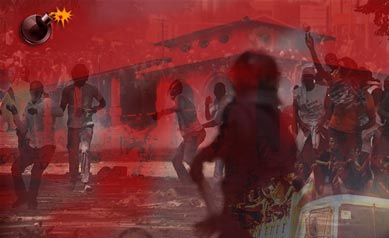Special Rapporteur On Eritrea: The Cause and The Likely Outcome
Repeating the same indifference it showed to the UN arms monitoring group resulting in two Security Council sanctions, the Eritrean regime has ignored repeated entreaties by the UN Human Rights Council (UNHRC), which has resulted in the UN naming a Special Rapporteur on Eritrea.
The decision was taken on July 5th by the 47th-member UNHRC.
The draft was put forth by a three-member African “core group” headed by Djibouti, which is still smarting over “Djiboutian combatants missing in action since the clashes of 10 to 12 June 2008”—a clash that is, according to the Eritrean regime, either a “fabrication” or real and allegedly being mediated by Qatar. (In response to the UN Monitoring Group on Somalia and Eritrea, Qatar had said that its mediation on Eritrea-Djibouti is only pertaining to border demarcation and its mandate does not extend to discussion about prisoners of war.)
Qatar also sits on the UNHRC and voted affirmatively on the motion to name a Special Rapporteur on Eritrea.
In addition to Qatar, eleven other Asian states (including Jordan, Kuwait and Saudi Arabia) and the entire roster of the African states (including Libya, Nigeria and Uganda) voted in support of resolution A/HRC/20/L19 which “condemns the continued widespread and systematic violations of human rights committed by the Eritrean authorities, including arbitrary executions, enforced disappearances and systematic use of torture…”
Further, the Council “calls upon the Government of Eritrea to end its use of arbitrary detention and torture; to release all political prisoners, including the “G-11”; to allow regular access to all prisoners; to put an end to the policy of indefinite military service; to allow humanitarian organizations to operate; to end ‘guilt-by-association’ policies that target family members of those who evade national service or seek to flee Eritrea; to cooperate fully with the United Nations, in accordance to international human rights obligations.”
In January, South Africa’s Navi Pillay, High Commissioner for Human Rights to the Human Rights Council, had written the Eritrean regime offering to send a mission and then met with an Eritrean delegation in March who requested for details on the scope of the mission, which she provided. In June, the High Commissioner reported that there had not been any reply to her proposal.
Attending the UNHRC session as a “concerned country”, the Eritrean regime said that “there were no human rights violations in Eritrea”, there “was no forced labour” and that the resolution was “a politically motivated strategy to destabilize Eritrea” and then called on the Council to reject it. Only three nations—Cuba, China and Russia—objected because “it was against the will of the concerned country.” Forty four nations voted for it.
The UNHRC, previously known as the UN Commission on Human Rights (UNCHR), was re-organized in 2007 to address critics’ concerns that it was too focused on politics and not enough on human rights. The Council is now, compared to the Commission, considered more focused on human rights and less on politics.
In addition to Eritrea, the UNHRC is also dealing with many open issues including Syria, Côte d’Ivoire, Somalia, and Mali.
Although the focus is different, the job of the Special Rapporteur is similar to that of the Monitoring Group: to monitor and to report. However, the Special Rapporteur cannot visit his designated country unless he or she is invited and, if history is a guide, it is likely that the Eritrean regime will not grant the Rapporteur a visa. The UN would then either extend the mandate of the Rapporteur or, as has happened with Belarus, terminate the mission.
//END
www.awate.com




Awate Forum